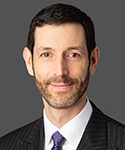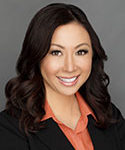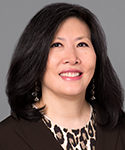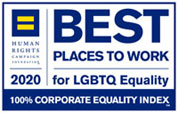 By Neville M. Bilimoria
By Neville M. Bilimoria
As an individual born in the United States to parents who were born and raised in India, I take a lot of pride in the sacrifices and hard work of my parents who made my life possible here in the U.S.
My father was born in a small town north of Mumbai called, Bilimora, where I get my last name. It is more of what we call today, a village, with no paved roads and for a while, no running water. He lived in poverty in that town and grew up sometimes shoeless and hungry with his parents and brother and sisters. Early on, amidst the stench of squalor and almost hopelessness in that village, he had a hard work ethic and he studied very hard. His hard work paid off, earning him a rare Tata Scholarship that allowed him to exit India, travel abroad, and obtain a scholarship to study in the U.S. At that time, only 10 Tata scholarships were awarded in the entire country of India. My father worked and studied very hard to obtain that notable award, and gain freedom outside of his small village to encounter new and exciting opportunities in the United States.
My dad studied and worked very hard at Tennessee University and Roosevelt University, earning many advanced graduate engineering and managerial degrees, only to land a highly sought after job working for General Electric Company for 35 years as a manager of refrigeration and range in Chicago. At one point he oversaw a busy manufacturing plant in Cicero, Illinois, just outside Chicago, where he managed over 16,000 employees. He brought my mom over from Mumbai in 1965 and my brother and I were born here in the U.S. shortly thereafter.
As wonderful a story as it was, and one that I am thankful for every day, my dad did experience discrimination during his time here, especially in the late 1960s. My dad made it a point to keep his experiences private, perhaps to save us from the excruciating pain of discrimination, and to perhaps shield us as best he could from the darker side of the U.S. — our free country that he loved. Even when he died early in 2002 from a bout with prostate cancer, he never showed us or told us about his discrimination, though we knew he encountered it. He always tried to be brave for me and my brother, but we knew being brown skinned and in the U.S. most of his life that he did encounter discrimination.
For example, it was only recently that my mother told us of a story about my father when the movie Green Book came out. Travelling in Tennessee, my father entered a diner (nerdy and clueless) and waited for a long time to be served. Finally, seeing no one that would take his order, a patron walked up and said “we don’t serve your kind around here.” At that point my father, always embracing Gandhi’s anti-violence teachings, packed up and walked out of the diner.
Indeed, growing up in Chicago, I myself faced instances of hatred based on my ethnicity, often misplaced and mistaken. For example, as a young boy in Chicago, I experienced many folks in school (often older kids) telling me to go back to Iran, or calling me derogatory terms that didn’t even match my ethnicity. Many kids in school also called me “Dot head” or “Gandhi”. I didn’t think too much of it then, adopting my Dad’s philosophy of just focusing, studying hard, and choosing to turn the other cheek.
In this month of Asian Heritage, I now look back on those instances of discrimination, and posit to you that these horrible acts actually made me and my family stronger.
Looking back, I’m glad that kids made fun of me and called me Gandhi. In essence, they were honoring my father and his peaceful, hardworking way of life. And I just worked harder in school to honor my family.
In even these recent times of hate crimes, the one solace we all have is our family and each other. That sense of family will continue to drive Asian Americans through any tough times ahead.
*This series has been created to celebrate Asian Pacific American Heritage Month.

 By Anastasia N. Kaup
By Anastasia N. Kaup
 By Mark Lerner
By Mark Lerner 


 By
By 